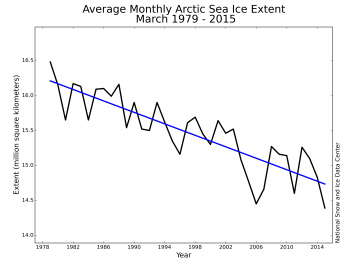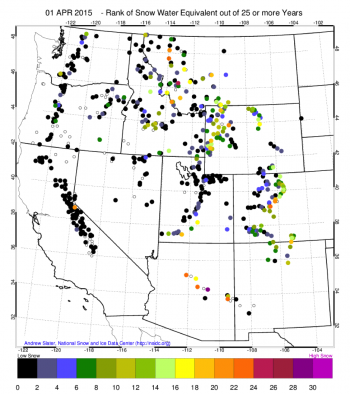March is normally the highest sea ice extent month in the Arctic Ocean. Here is Mar 2015 compared to Marches past (NSIDC). Yes, its a record low for the satellite era.
http://nsidc.org/arcticseaicenews/files/2015/04/monthly_ice_NH_03-350×270.png

You know all that snow that fell in the East this winter? Here’s where it all came from.
http://nsidc.org/arcticseaicenews/files/2015/04/snow-350×394.png

NSIDC scientist Andrew Slater maintains regular updates of western U.S. mountain snowpack conditions using data from the SNOTEL (snowpack telemetry) system – a network of automated sensors that measure snow water equivalent. The automated SNOTEL sites are complemented by snowcourses, where snow water equivalent is measured manually on a periodic basis.
Typically, the snowpack peaks around April 1. As seen in Figure 5, the April 1 snowpack over most of the western United States is far below average. At many sites, snow water equivalent is at historic lows for this time of year.